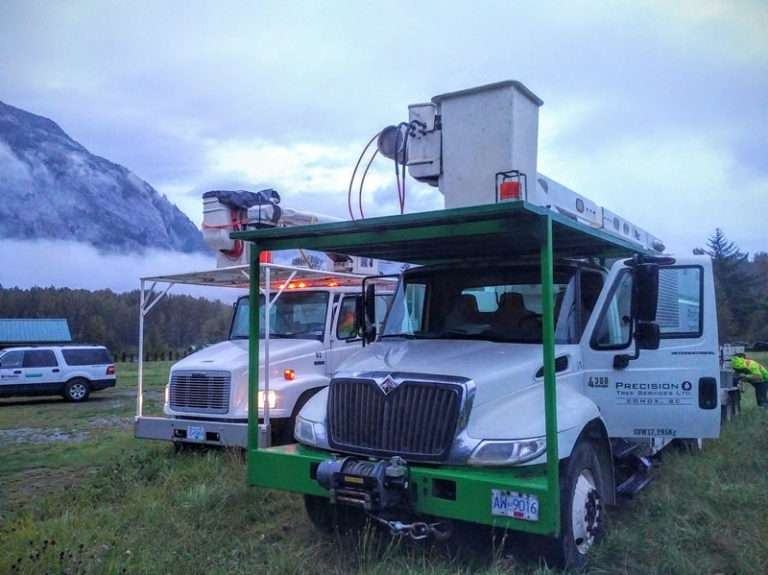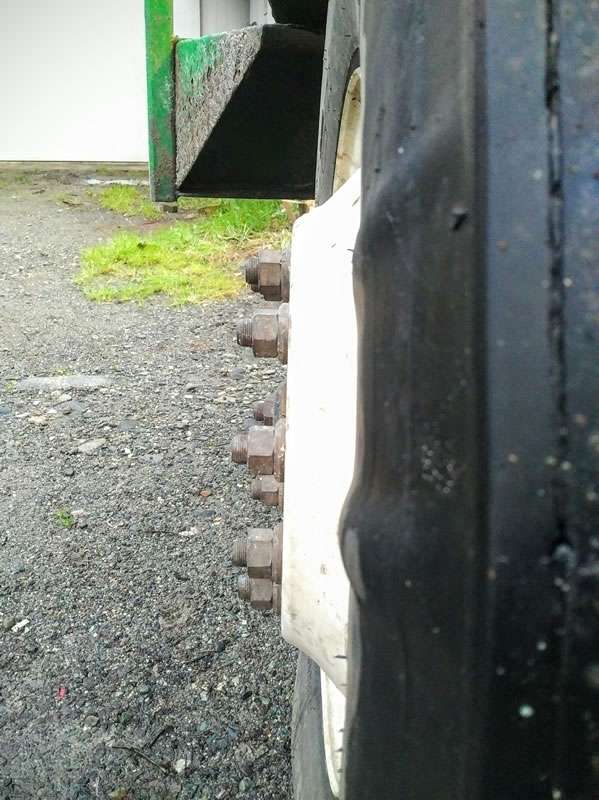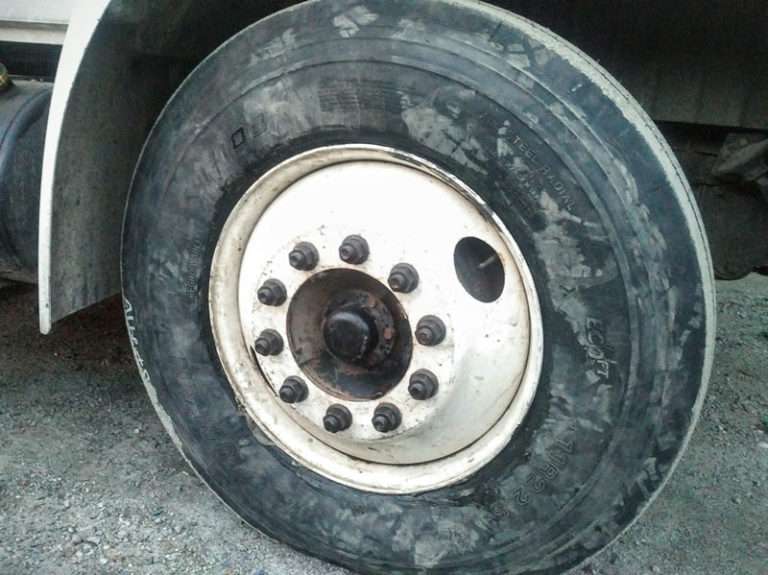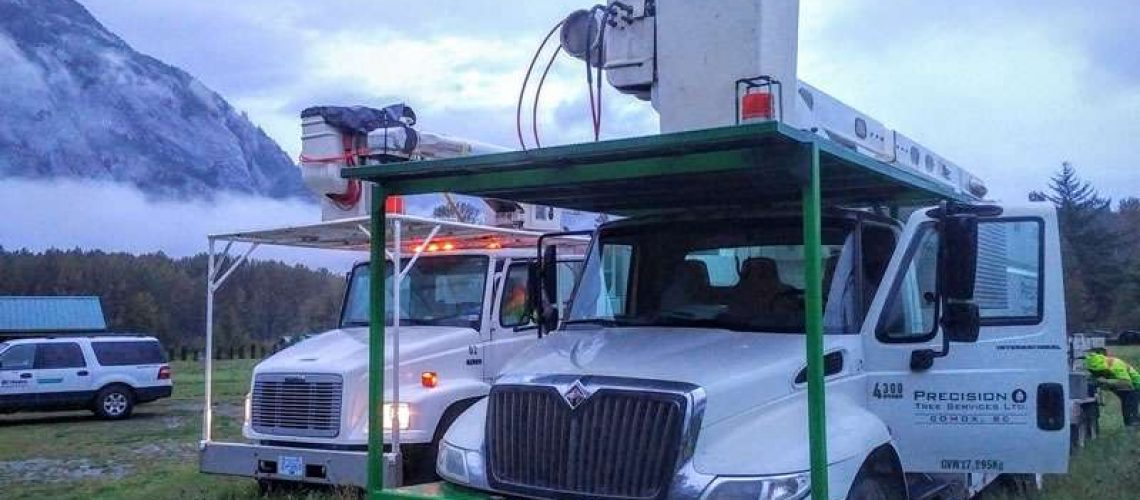A “Good Catch” is a safety near miss or a close call – any unplanned event or unseen hazard that does not result in an injury, illness or damage but, had the potential to do so. We have decided to start a series posting Good Catches to our page to help others recognize and deal with situations that may lead to injury, illness or damage BEFORE it can happen.
A bucket truck crew was conducting a normal pre-work start up routine in the morning, which included: warm up and stretching; holding safety tailboard to discuss the work plan, hazards and barriers to hazards to be encountered that day; small tool inspection and maintenance (ie. chainsaws); truck, boom and chipper inspection and warm up.

During the pre-trip inspection of the bucket truck, one of the drivers noticed an imperfection in the sidewall of on the front steering tires. The slight bulges were very difficult to see in the early morning light, and are an indicator of a separating tire sidewall. Tire failure was imminent. Finding the defect in the tire was a GOOD CATCH.

The driver, Ryan Gansner, was given commendations for making this Good Catch.

The work plan was modified and the truck with the failing front tire was taken out of service until the tire could be replaced. Luckily, the mechanic shop across the street had a spare tire and the bucket truck was headed to work later that morning.

A productive and safe workday starts well before the first branch has been cut. A thorough pre-trip of all mobile equipment must take place prior to operating it. For a comprehensive review of pre-trip requirements for commercial vehicles, please see Chapter 10 (page 195) of ICBC’s “Driving Commercial Vehicles”.

